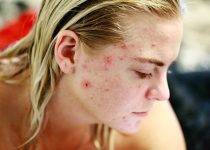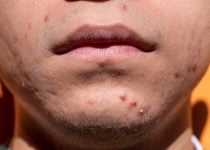The Ultimate Guide To Curing Acne: A Comprehensive Solution
Acne is a common skin condition that affects millions of people worldwide. It can be a frustrating and embarrassing problem, but there are effective treatments available to help you achieve clear, healthy skin. In this comprehensive guide, we will explore the causes of acne, the different treatment options available, and the steps you can take to prevent breakouts.
Acne is caused by a combination of factors, including:
* **Excess sebum production:** Sebum is an oily substance that helps to keep your skin moist. However, if you produce too much sebum, it can clog your pores and lead to breakouts.
* **Clogged pores:** When your pores are clogged with sebum and dead skin cells, bacteria can grow and cause inflammation. This inflammation leads to the formation of pimples.
* **Hormonal changes:** Acne is often triggered by hormonal changes, such as those that occur during puberty or pregnancy.
* **Certain medications:** Some medications, such as corticosteroids and birth control pills, can cause acne as a side effect.
* **Genetics:** Acne can also be influenced by genetics. If you have a family history of acne, you are more likely to develop the condition.
There are several different types of acne, including:
* **Whiteheads:** Whiteheads are small, closed pimples that are filled with sebum.
* **Blackheads:** Blackheads are similar to whiteheads, but they are open and have a black appearance.
* **Papules:** Papules are small, red bumps that are caused by inflammation.
* **Pustules:** Pustules are papules that are filled with pus.
* **Nodules:** Nodules are large, painful bumps that are located deep in the skin.
* **Cysts:** Cysts are large, pus-filled bumps that can cause scarring.
The best treatment for acne will depend on the type of acne you have and the severity of your condition. Some of the most common treatments include:
* **Over-the-counter medications:** Over-the-counter acne medications typically contain ingredients such as benzoyl peroxide, salicylic acid, or retinoids. These medications can help to kill bacteria, reduce inflammation, and unclog pores.
* **Prescription medications:** If over-the-counter medications do not work, your doctor may prescribe stronger medications, such as antibiotics or oral retinoids.
* **Laser therapy:** Laser therapy can help to kill bacteria and reduce inflammation. It can also help to improve the appearance of acne scars.
* **Light therapy:** Light therapy uses ultraviolet light to kill bacteria and reduce inflammation.
* **Chemical peels:** Chemical peels can help to remove dead skin cells and unclog pores.
In addition to medical treatments, there are several things you can do at home to help prevent and treat acne:
* **Wash your face twice a day:** Use a gentle cleanser and lukewarm water to wash your face twice a day. Avoid using harsh scrubs or cleansers, as they can irritate your skin and make acne worse.
* **Moisturize your skin:** Dry skin can make acne worse, so it is important to moisturize your skin regularly. Choose a moisturizer that is non-comedogenic, which means that it will not clog your pores.
* **Avoid touching your face:** Touching your face can transfer bacteria to your skin and cause breakouts.
* **Eat a healthy diet:** Eating a healthy diet can help to improve your overall health and may also help to reduce acne. Choose foods that are high in vitamins A, C, and E, and avoid sugary drinks and processed foods.
* **Get enough sleep:** Getting enough sleep can help to reduce stress and improve your immune system, which can help to keep acne at bay.
* **Manage stress:** Stress can trigger acne breakouts. Find healthy ways to manage stress, such as exercise, yoga, or meditation.
Acne can be a frustrating and embarrassing condition, but there are effective treatments available to help you achieve clear, healthy skin. By following the tips in this guide, you can take control of your acne and enjoy a more confident, beautiful complexion.


